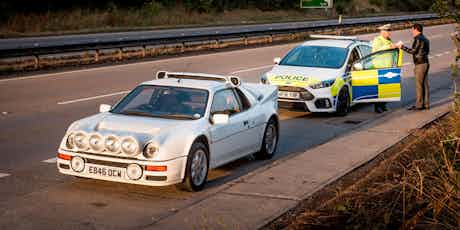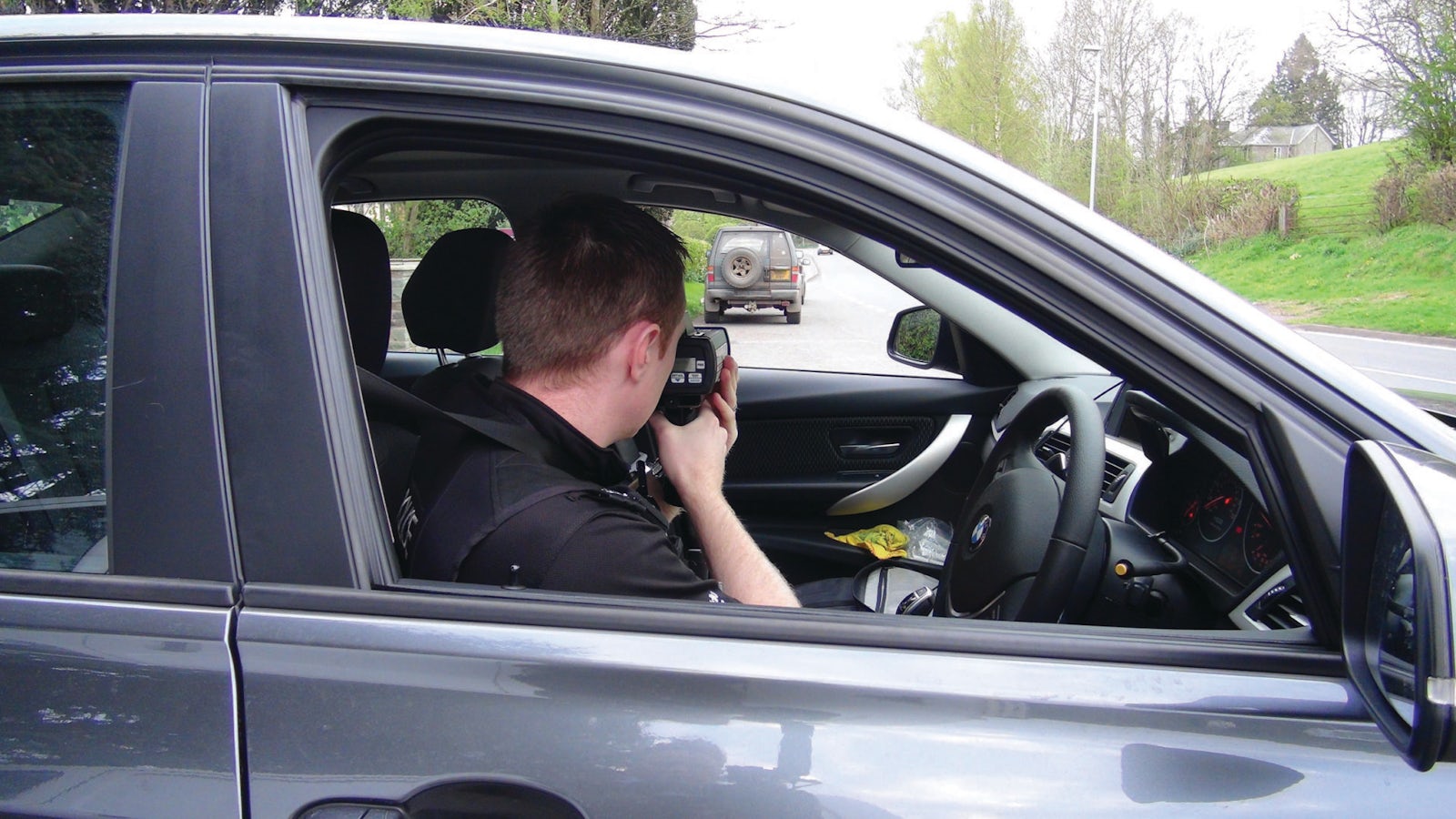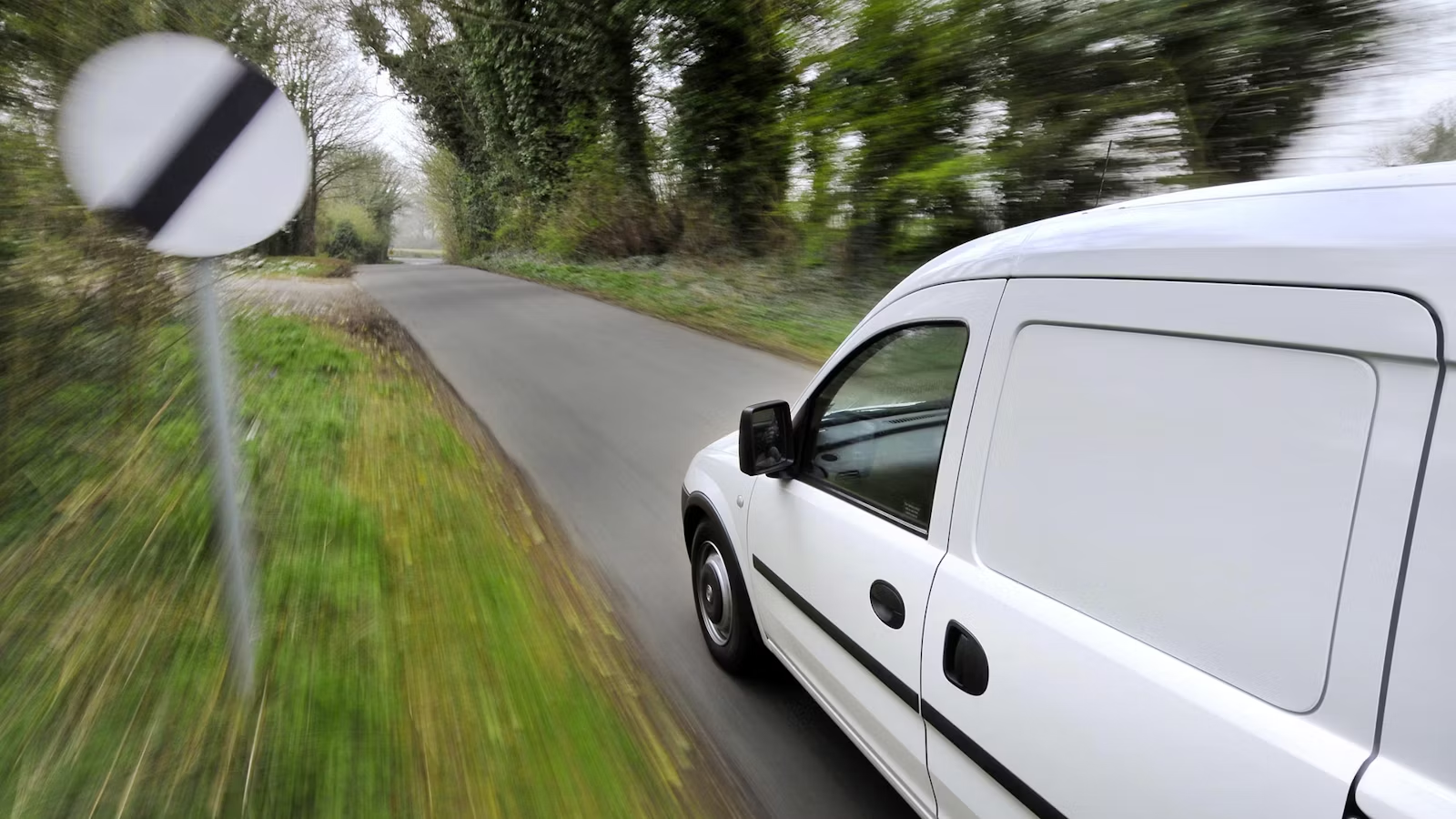Speeding fines and penalties: how much do I have to pay?
July 08, 2024 by Jamie Edkins

Nobody wants a speeding fine to land on their doormat, but what penalties can you expect to face in the UK if you see that dreaded flash in your rear-view mirror? Read on to find out.
Getting caught speeding is a gut-wrenching feeling. From the moment you see the camera flash at you, or the police car flicks on the blues and twos, you just accept the fact that a ticket will be winging its way to your front door.
You might be wondering what speeding fines you can expect to face, or if there’s anything you can do to avoid them. Well this handy guide will explain all.
How do speeding fines work?
It’s illegal to break the posted speed limit on a road, and being caught doing so will land you with a penalty. If you’re caught speeding by a camera, you’ll get a speeding ticket posted to the address where your car is registered. Getting caught by a police officer will result in a ticket being issued on the spot.
A speeding ticket in the UK will entail a penalty fine at the minimum, along with either points on your licence or an invitation to attend a driver improvement course.
What happens when you’re caught speeding?
There are two ways you can be caught speeding, be that by a speed camera or by a police officer. The procedure for each is slightly different.
When you’re caught speeding by a camera
A speed camera will go off if you pass it going over the posted speed limit and capture your number plate. If you’re caught speeding by a static or average speed camera, you’ll be sent a Notice of Intended Prosecution (NIP) within 14 days along with a section 172 notice.

You have to fill in and return the section 172 notice within 28 days telling the police who was driving the car. Failing to do this may mean you have to go to court.
Once you’ve sent the section 172 back, you’ll either get a Fixed Penalty Notice (FPN) or a letter telling you to go to court. If you get a FPN, it will detail what fine you’ll be facing and you can either plead guilty or not guilty. If you decide to plead not guilty, you’ll have to go to court and your punishment may be more severe if you’re found guilty.
When you’re caught speeding by a police officer
If you’re caught speeding by a police officer, they may do one of three things. If it’s a minor offence, they may let you off with a verbal warning.

They could also give you a Fixed Penalty Notice, or send one to you by post. When you get the FPN, you can still plead guilty or not guilty, the same as when you get caught by a camera.
The police officer may order you to go to court if it’s a serious offence. You’ll be sent a letter telling you what to do if this is the case.
How much is a speeding fine?
Speeding ticket fines will vary depending on the severity of the offence, however, at a minimum, you will be charged £100 and get three points on your licence.
Speeding offences are grouped into three categories, band A, B and C, depending on how far over the speed limit you were driving. Below is a breakdown of the categories for speeding fines.
| Speed Limit (mph) | Recorded speed (mph) | ||
| Band A | Band B | Band C | |
| 20 | 21-30 | 31-41 | 41 and above |
| 30 | 31-40 | 41-50 | 51 and above |
| 40 | 41-55 | 56-65 | 66 and above |
| 50 | 51-65 | 66-75 | 76 and above |
| 60 | 61-80 | 81-90 | 91 and above |
| 70 | 71-90 | 91-100 | 101 and above |
| Points | Three points | 4-6 points | Six points |
| Fine | 25-75% of weekly income | 75-125% of weekly income | 125-175% of weekly income |
| Disqualification | No (Unless you have more than 12 points) | 7-28 days | 7-56 days |
Fines are capped however at £1000, or £2500 for motorway tickets.
Sometimes, you may be offered a speed awareness course in place of points on your licence. While this will take a day of your time and cost around £90, it’s worth it to avoid those points. There’s no guarantee that you’ll be given this option, and you won’t be offered the course if you’ve been convicted of speeding within the last three years.

There are also bands D, E and F for more serious offences. Factors that may push a speeding ticket into these categories may include driving a large goods vehicle, towing a trailer or caravan, driving near a school, carrying passengers or a heavy load among other things.
The fine for a band D offence currently stands at between 200-300% of your weekly income, band E is 300-500% of your weekly income and band F could land you a fine of 500-700% of your weekly income.
How long does it take to get a speeding ticket?
If you’re stopped by a police officer you will know there and then if you are being let off with a warning, or further action will be taken. If you are caught by a speed camera you should receive any correspondence or NIP in the post within 14 days.
We say should, as this the ’14-day rule’ is not a hard and fast one: while the Road Traffic Offenders Act 1998 stipulates that offenders should receive a NIP or court summons “within fourteen days of the commission of the offence”, police only need to show that under normal circumstances it should reach you within this timeframe. Postal strikes or delays, a change of address or a hire-car company or employer having to forward the letter through to you will not see you excused the penalty.
How to pay a speeding fine
In England and Wales, you can pay your speeding fine online on the gov.uk website. You just need to follow the instructions and have your FPN to hand for some details.
In Scotland, you can also pay your fine online. If you’d prefer, you can also pay by phone or by post. Instructions on how to do this can be found on the Scottish Courts and Tribunals website.
The process in Northern Ireland is slightly different. You have to surrender both parts of your licence – NI driving licences comprise a plastic card and a paper supplement – to your local police station who will send it to the Fixed Penalty Office to be endorsed with points before posting it back to you. You then pay the penalty fine by phone, by post or in person.
Can I contest a speeding fine?
You can appeal a speeding ticket by filling out the relevant section on your Notice of Intended Prosecution. You need to carefully think about whether you have a solid case for disputing the ticket because if the police reject your appeal you’ll have to go to court. Be warned that if you are appearing in court to contest the speeding ticket and are unsuccessful, you may find yourself with a tougher penalty than the one you originally received.
Acceptable grounds for dispute include:
- Unclear, obscured or missing road signs (you’ll need photographic evidence of this)
- If you weren’t the one driving the car (you’ll need to tell the police who was driving)
- If you’re sure you weren’t speeding, however, you’ll have to go to court and prove this
- You can ask for the calibration certificate of the camera which caught you in court
Unacceptable grounds for dispute include:
- You didn’t know what the speed limit was
- It was an emergency/you were in a rush
- It was late at night or the roads were quiet
What happens if I’m summoned to court?
Your case may end up in court if it’s deemed serious enough. Also, if you decide to appeal the ticket and the police reject it, you’ll have to go to court. A summons for speeding must be issued in the Magistrates Court within six months since the alleged offence.
Before you decide to potentially take your case to court, you need to have solid grounds for dispute. Some examples include unclear road signs, if you weren’t the one driving, or if you can prove that you weren’t speeding. You will need solid evidence, however, such as photographs.
You are unlikely to need a Hollywood sized legal team to fight your case for you, but it is a good idea to take some legal advice before your court appearance.
Magistrates have heard every excuse for speeding, so most of them won’t work. Common examples include saying you weren’t aware of the speed limit, the roads were quiet or it was an emergency.
If you accept that you were speeding, some of these factors could be used as mitigating factors to reduce your penalty. You want to be apologetic, admit you made a mistake but also give the reasons why. Outline the consequences of getting points on your licence as well, such as if you’re at risk of losing your job.
Speeding penalties FAQs
Can I pay my speeding fine in instalments?
Speeding fines are due in full straight away. However, in some circumstances, the court may offer an instalment order. Don’t assume this will happen though.
Will a speeding fine affect my insurance?
If you have points on your licence as a result of a speeding fine, you will have to declare this to your insurance company. This may increase your premiums depending on your insurance provider’s policy.
How long do speeding points stay on your licence?
Points from a speeding offence will stay on your licence for four years, however they are only active for three years. When your points are active, they’ll add up if you get more at a later date. Once they’re no longer active, they won’t count towards your total number of points, however a judge may take them into account if you commit another driving offence.
Can I get disqualified from driving for speeding?
Depending on the severity of the speeding offence, you may be disqualified from driving for up to 56 days. Also, if you build up more than 12 points on your licence you will lose it.
When will I get offered a speed awareness course?
You will be offered a speed awareness course on your Fixed Penalty Notice, if the police decide to allow this. If you go to court, you may be offered a speed awareness course if you successfully plead to mitigating circumstances.
How do I avoid a speeding fine?
The obvious, and most simple answer, is to stick to the speed limit. Aside from that, cruise control can help keep you on the right side of the law, while route guidance software can also highlight speed cameras and speed limits. The same goes for intelligent speed assistance, which is a modern safety feature in your car that scans speed limit signs and uses GPS data to display the speed limit on your dashboard or infotainment screen.
Who gets the money from speeding fines?
Money collected from speeding fines goes to a Consolidated Fund, which is seen as the Government’s current account. This means it goes on general government expenditure.
Cars Change? Carwow!
Looking for a new set of wheels? With Carwow you can sell your car quickly and for a fair price – as well as find great offers on your next one. Whether you’re looking to buy a car brand new, are after something used or you want to explore car leasing options, Carwow is your one stop shop for new car deals.















